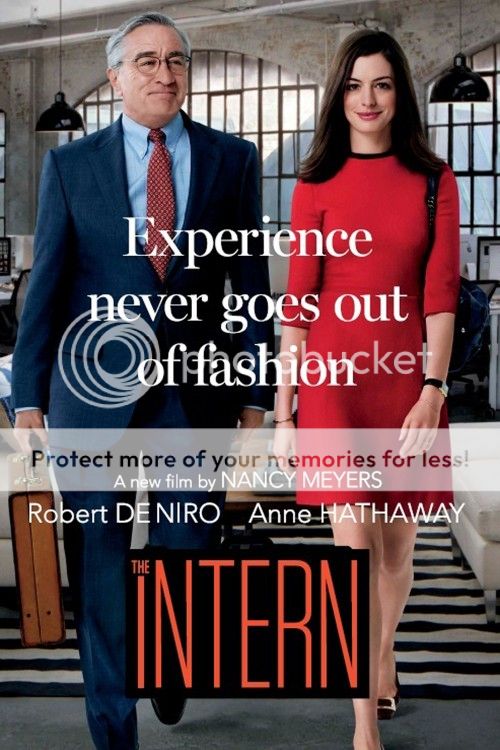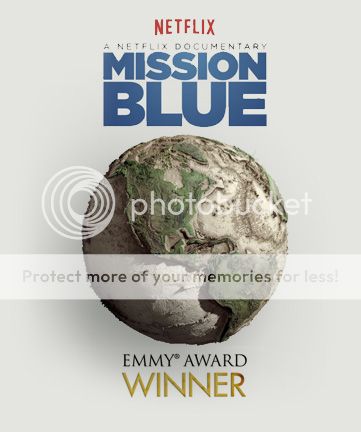 Some mood music, while you read.
Some mood music, while you read.
We at the PPCC are
huge sci-fi nerds, and yet it has taken us a long (loooong) time to get into that one mighty pillar of sci-fi-ness, Britain's
Doctor Who of Britain, starring Britain, co-starring Britishness. Okay, we tease, but, damn, that shit is nationalistic! Which is fine. Most spec fic is notoriously US-centric, after all. Anyway, we're glad we finally initiated ourself. In addition to being nationalistic like crazy sauce, it is also addictive and silly and fun and full of everything.
It's difficult to review a PILLAR, so instead we'll focus on a few things:
- The episode, Midnight, and how it's awesome and a good intro. (Review)
- Some Doctor Who themes, and how they run the gamut from awesome to stupid to huh-ness. (Thoughts)
Allons-y, then!
Episode review: Midnight
Doctor Who episodes seem to come in three varieties:
- Really trashy, ridiculous, and occasionally awful one-off episodes, featuring a Monster of the Week. As some of our friends assured us, "You do know it's a kid's show, right?" (No, we didn't! But now we do. Oh, how we do.)
- Really spectacular, mind-bending one-offs.
- Mediocre-to-good episodes that are usually redeemed by giving us one more crumb along the Great Path of Understanding the Doctor, usually accompanied by a Great Emotional Moment for the Doctor as well. These are exciting.
Midnight falls into the secondary category. It's the perfect gateway episode; you can watch it while knowing nothing of the Doctor and his Interminable Journey. But, of course, the experience is much richer if you
do know a bit, since Midnight takes several Doctory themes, and then subverts them in refreshing ways.
Midnight begins on a fancy, diamondy planet called, uh, Midnight. Which is ironic, since it is brilliant and sparkling and very, very sunny. It is also totally hostile to any form of life; the sun being "x-tonic", which is technobabble for "zapping killer laser beam-like". The Doctor (David Tennant) and his Companion, the wonderful Donna Noble (the wonderful Catherine Tate), are taking a (
much-deserved) break on Midnight, which markets itself as a party planet. The Doctor decides to go on a nature tour, while Donna lounges by the pool.
On the nature tour, we're introduced to a variety of Typical Human People: there's the suburban couple (Daniel Ryan, Lyndsay Coulsen) and their sullen teen son (Colin Morgan), the bumbling professor (David Troughton) and his geeky assistant (Ayesha Antoine), the flight attendant (Rakie Ayola; called a "hostess" in the episode, since apparently it's also 1950), and a middle-aged divorcee (Lesley Sharp). After lampooning modern commercial flight (endless, chattering entertainment options, tiny peanut packets, and so on), the journey is underway. The Doctor makes a few friends, people joke, and obviously something horrible is looming on the horizon.
We won't give away the horribleness, because much of the episode's genius is the smart and inventive (and cheaply-produced!) monster that we meet. If it's a monster at all. But it's something straight out of
The Twilight Zone or Hitchcock: the fear and tension is slow, subtle, and gripping. One subversion of the Doctor Who routine is that the Doctor is as ignorant as everyone else on the ship (and in the audience) as to what the It thing is. Nothing is supposed to live on Midnight, and yet it seems something has? (Note that we can't even conclusively say that something has. One lovely interpretation of the episode is that there was
nothing there at all, and everyone just freaked themselves out.)
A second subversion of Doctor Who's usual stuff is that, for once, humanity isn't celebrated, but instead retreats immediately into the banality of evil. When confronted with something difficult to understand and potentially violent, the passengers become scary and bestial themselves. It's reminiscent of
J.G. Ballard's comments on seeing the "ragged scaffolding" of suburban civilization strip away, and how rattling that can be. For Doctor Who fans and the Doctor himself, it's especially rattling: usually, humanity has a big ol' crush on the Doctor, and is always happy to be helped. Here, they're skeptical, paranoid, hostile.
Anyway, the craft in this episode is just brilliant. The dialogue: building up tension, revealing aspects of the It thing's otherness slowly, taking sudden turns. Argh, as a writer, the PPCC burned with jealousy at someone having had such a good idea! The
music. The acting: Tennant is always pretty damn good, but his role-reversal during the climax was so well-done. As with Lesley Sharp, especially in the earlier moments of being possessed, when she's/it's "learning". Ah! So good. Bravi, bravi.
Big thoughts
First big thought: Doctor Who is Buddhism
In fact, it might be as Buddhist as
Groundhog Day, and that's
pretty damn Buddhist. Except, whereas Groundhog Day is uplifting because it shows us nirvana (the ultimate happy ending), Doctor Who just grounds the PPCC down with its nihilistic woe. Seriously, how can this be a kid's show? HOW?! It is
misery by design.
The most obvious Buddhist links are, first, the regeneration, and, second, the eternal woe. Oh, the woe.
One of the central tenets of Buddhism is that life is suffering, and it tends to repeat again and again, until we can break out of it by building mindfulness and compassion and non-attachment. Once you break out of that cycle of life and rebirth, you turn into Bill Murray - i.e. a Buddha, an enlightened being. In
Mahayana Buddhism, there's an intermediate stage, called a
bodhisattva - that's someone who delays nirvana, staying amongst the merely-stuck to teach about loving-kindness and being all nice and stuff.
You could argue that the Doctor's a bodhisattva. But we wouldn't. Because while he is pretty helpful and sorta nice and all that, he's also fighting the same battles over and over again: those Daleks never seem to die, do they? Nor does the (wonderful)
Master (nor should he!).
Similarly, you'd think the Doctor would have learned, by now, that attachment leads to suffering (second Noble Truth in the ol' Buddhism). But he doesn't - constantly seeking out Companions, and constantly, ahem, effing them over. They never seem to emerge unscathed from their adventures. Seriously, after you've lost various Companions to death, dismemberment and being locked in a parallel universe, JUST STOP, DUDE.
So, it's Buddhism, but it's Buddhism at its saddest: the moment after the First and Second Noble Truths (life sucks, and the sucking will go on forever), and
before the Third and Fourth (wait, maybe I should stop all this). To use a Christian analogy, it's like modeling a story on the moment
after Jesus dies, but
before he's resurrected. It's just miserable, dude.
IS THIS WHAT YOU TEACH YOUR CHILDREN, BRITAIN?!
Which brings us to the second big thought.
Second big thought: Doctor Who is Nationalism
"Oh no," someone gasps. "They're headed towards
Earth!"
Cut to outline of the UK.
The ostensible backstory is that the Doctor loves Earth like peanut butter loves jam. And that's fine. But Earth is basically Britain. And not only that - it's England. Scottish David Tennant wasn't allowed to keep his Scottish accent because,
of all the regenerations a rogue Time Lord could make, of all the species, the genders, the heights and the everythings, the dude's gotta be a white English male every. single. time. Rumor has it the newest Doc, Peter Capaldi, will be retaining his Scottish accent, but this was - apparently - a
major BBC decision.
Sometimes, the nationalism stuff is grating. But we know that we have no leg to stand on; most sci-fi is heavily skewed towards the US, and few people even seem to
notice. At other times, the nationalism stuff is hilarious and wonderful, such as when an ailing Doctor - remember, this guy's a magical, super-smart, self-healing, time-traveling alien - is on the brink of death and then healed by the power of a CUP OF TEA. (Seriously, that was brilliant.)
Another wonderful byproduct of the Who's nationalism, is its portrayal of workaday Normal British Folk in all the supporting characters: Rose Tyler (Billie Piper), the London shopkeeper. Donna Noble, who's "just a temp from Chiswick!" And their funny families! Everyone is pretty modest, even mediocre. What's nice about the show is that it celebrates this normality for the inherent brilliance it can conceal.
Third big thought: Doctor Who is fandom
Fandom is nice. Fandom is fun. And Doctor Who has a huge, gigantic, long-lived fandom that seems to go on and on in every direction, and rival the Trekkies in terms of historicity and population density. Many of our good friends are Whovians. Some of the latest Doctors themselves - Tennant and Capaldi - are Whovians. And then you've got things like
Adventure Time fans and
fun, smart YouTube channel fans, and
references all over the place. And the fanfiction! Oh, the fanfiction. We don't even want to go there.
For whatever reason (we still haven't pinpointed it), this miserable, lonely Time Lord has captured everyone and their mom's attention - including ours. The PPCC has basically put everything on hold while we finished off the Tennant years. And now we've still got all of Matt Smith to go - oh God.
There's still so much to say - how Doctor Who compares to
Star Trek, especially The Next Generation, since we do think they are two sides of the same (weird) coin. Or the weird moments of transcendental, pulpy space opera in Who - especially when they
talk about the Time War (and it sounds like the line-up for a
heavy metal festival, "the Could-Have-Been King and his army of Meanwhiles and Never-Weres!"). But we'll leave that to another day, as it's 1AM here and a Time Lord has just regenerated in our laptop!




